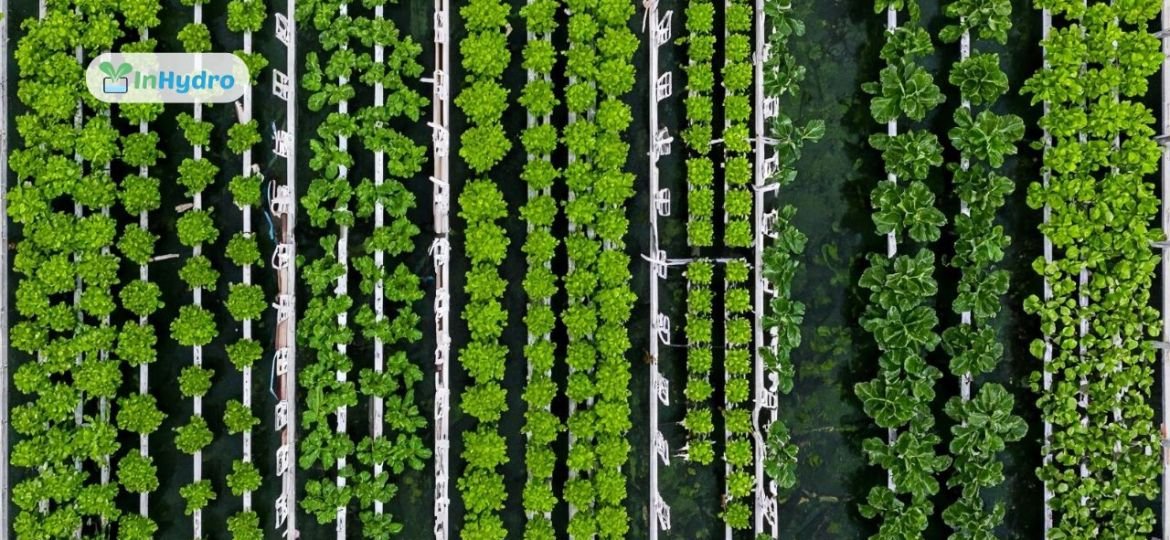
Localizing Food Production: How Hydroponics Reduces Dependence on Imports
India’s growing population and changing climate have made food security a major concern. With rising import bills for essential vegetables and herbs, finding sustainable ways to produce food locally is more critical than ever. Hydroponics, a modern, soil-less farming method, presents a solution that can reduce dependence on imported produce while ensuring fresh, high-quality food for consumers.
The Challenge of Food Imports in India
India imports a significant portion of its fresh produce, including exotic vegetables, herbs, and high-value crops. Factors like:
- Unfavorable weather conditions in certain regions
- Seasonal availability of crops
- Soil degradation and water scarcity
- High logistics and transportation costs
…all contribute to the country’s reliance on imported food. This not only affects food prices but also increases carbon footprints due to transportation. Hydroponics can address these challenges by enabling year-round local production in controlled environments.
How Hydroponics Reduces Import Dependence
Hydroponic farming allows India to cultivate crops that were previously dependent on imports. Here’s how:
1. Growing Exotic Vegetables Locally
Leafy greens like lettuce, kale, and herbs such as basil, parsley, and thyme are often imported due to unsuitable growing conditions in India. With hydroponic farms, these crops can be grown in controlled environments, eliminating the need for imports.
2. Efficient Land and Water Use
Traditional farming methods require large areas of fertile land and significant water resources. Hydroponics uses:
- 90% less water than soil-based farming
- Vertically stacked systems, maximizing space
- Recycled nutrient solutions, reducing waste
This enables high-yield farming even in urban areas or places with degraded soil, ensuring a steady local supply of vegetables and herbs.
3. Consistent Year-Round Production
Seasonal variations often affect the availability of fresh produce, leading to price fluctuations and increased reliance on imports. Hydroponic systems provide:
- Temperature and humidity control to optimize plant growth
- Artificial lighting for stable production even in low-sunlight conditions
- Predictable harvest cycles, reducing seasonal shortages
By stabilizing local supply, hydroponic farming helps India reduce market fluctuations and lessen dependency on imported goods.
4. Reduction in Transportation Costs and Carbon Footprint
Imported food requires extensive transportation, storage, and packaging, leading to:
- Higher costs for consumers
- Significant greenhouse gas emissions from shipping and trucking
Hydroponics enables production near consumption centers, such as:
- Urban farms supplying fresh vegetables to supermarkets
- Rooftop farms in restaurants and hotels
- Community-based hydroponic projects for local markets
This not only cuts import costs but also contributes to sustainability.
Economic and Policy Benefits of Local Hydroponic Farming
Governments and private investors are recognizing hydroponics as a strategic way to enhance food security. Some key benefits include:
- Employment Generation: Hydroponic farming creates jobs in urban and rural areas, reducing reliance on imported food sector labor.
- Foreign Exchange Savings: Decreasing imports means reduced foreign currency outflow, benefiting the national economy.
- Government Support: Policies promoting Controlled Environment Agriculture (CEA) and hydroponic technology adoption are being introduced to support local food production.
The Future of Hydroponics in India
Hydroponics is not just a trend; it is a necessary shift toward self-sufficiency. As India advances in smart agriculture and automation, hydroponic farms will play a crucial role in:
- Strengthening the farm-to-table movement by reducing food miles
- Providing chemical-free, fresh produce without harmful pesticides
- Enabling food security in climate-vulnerable regions
Conclusion
Reducing dependence on imports is essential for India’s food security, economy, and sustainability. Hydroponics provides a viable solution by enabling local cultivation of high-value crops, reducing transportation costs, and ensuring year-round food production. With government support, technological advancements, and increasing awareness, hydroponic farming can redefine India’s agricultural landscape and promote self-reliance in food production.
By investing in hydroponic technology today, India can take a major step toward a resilient and sustainable food system for the future.

